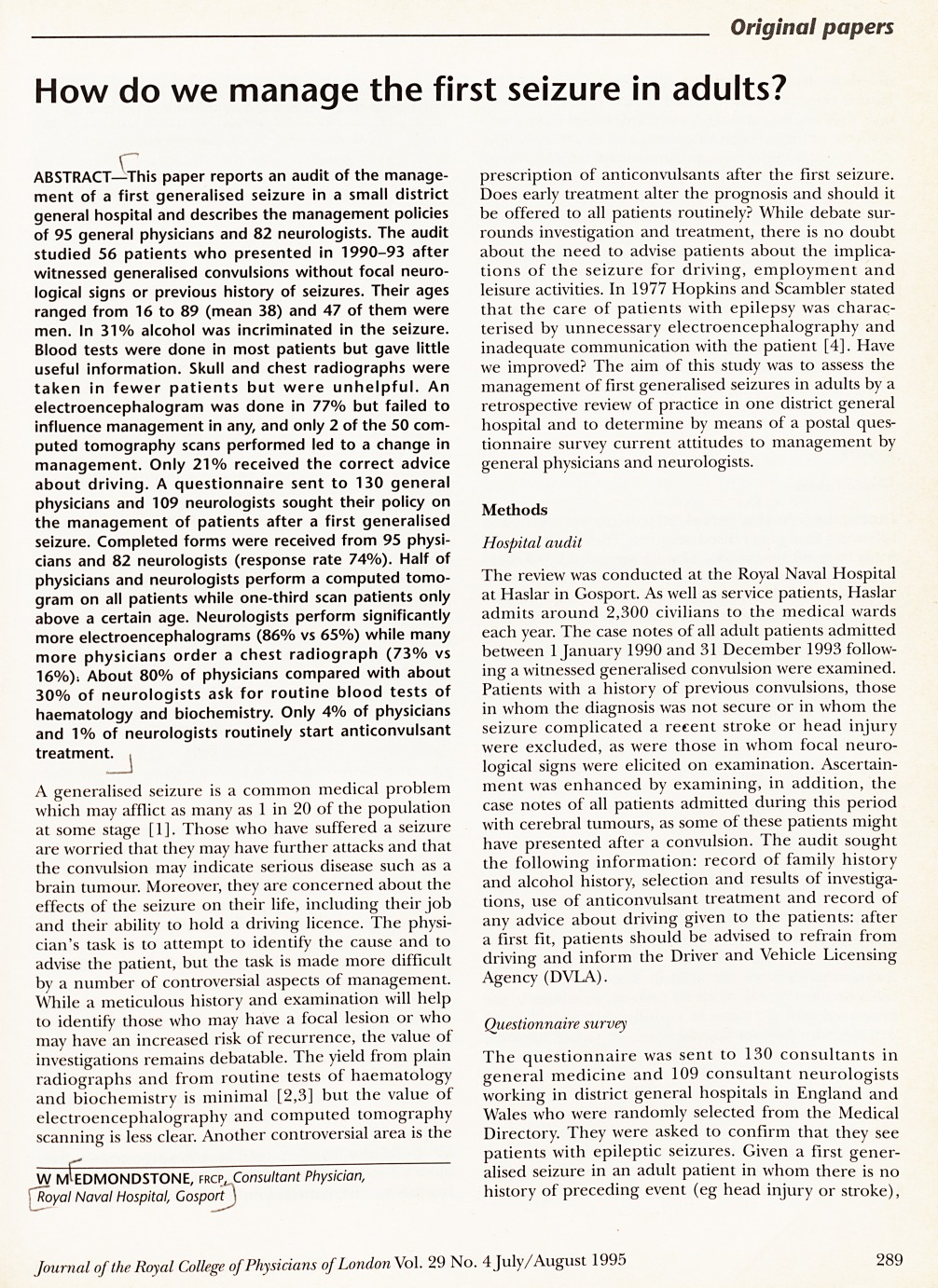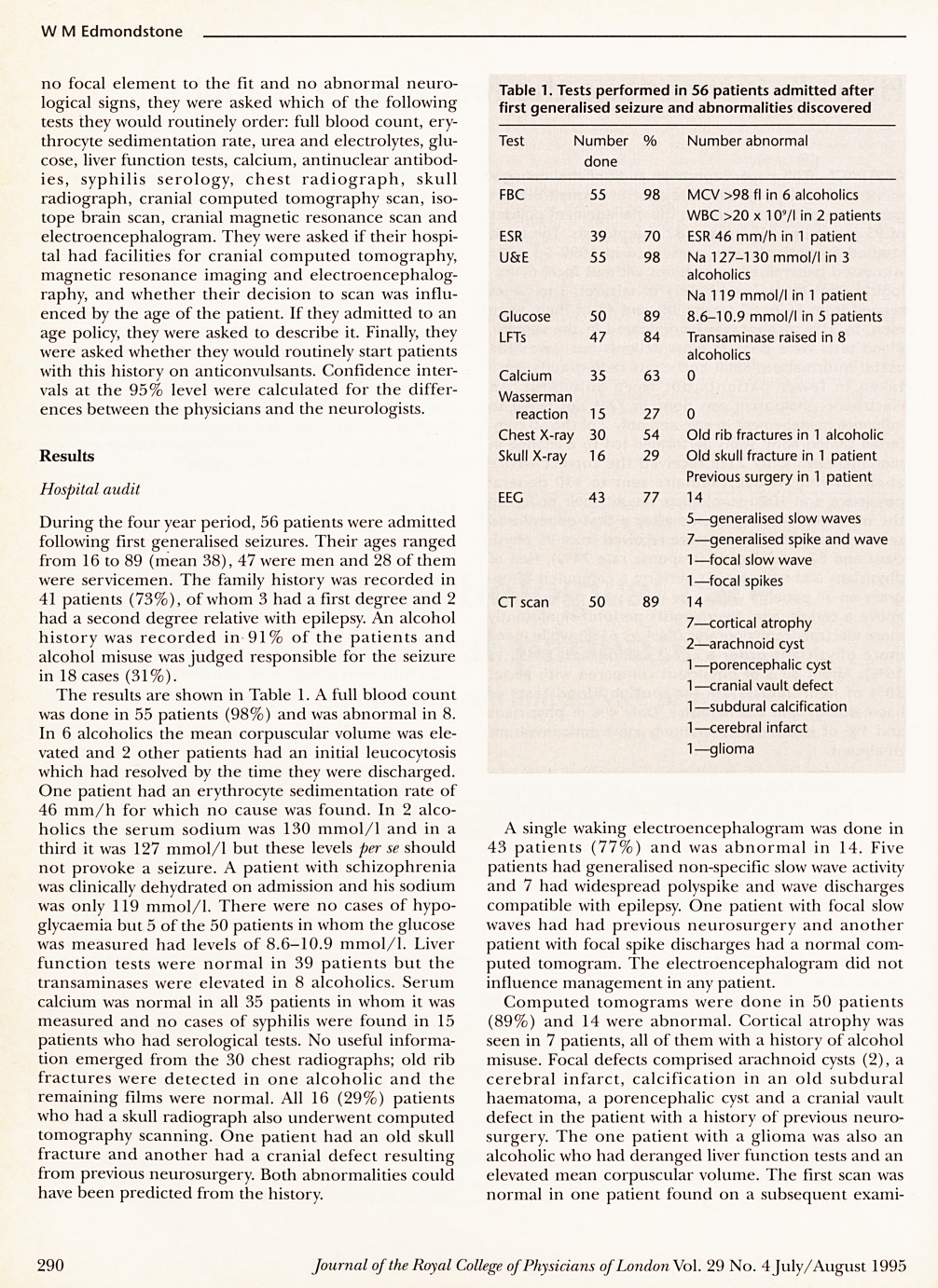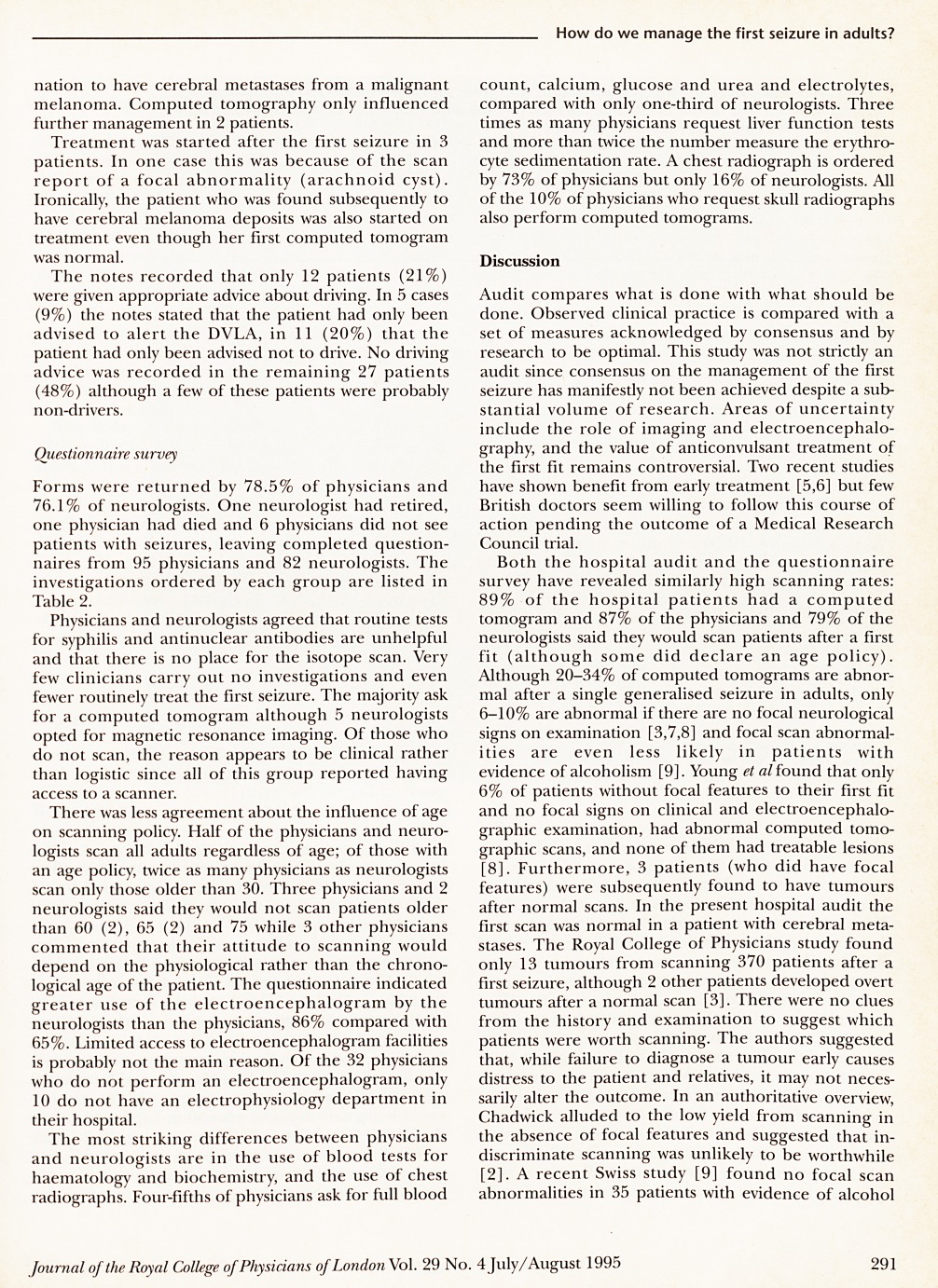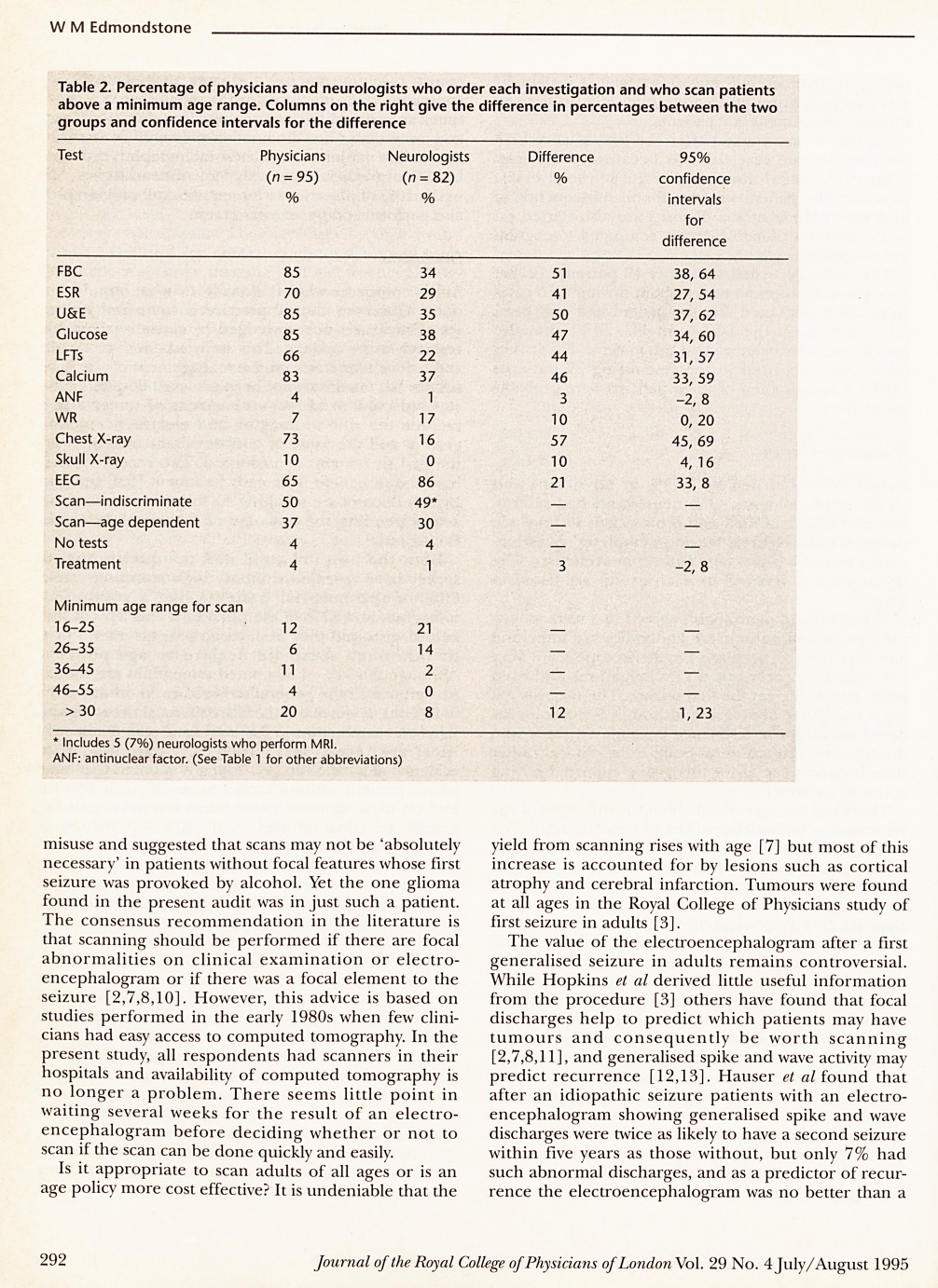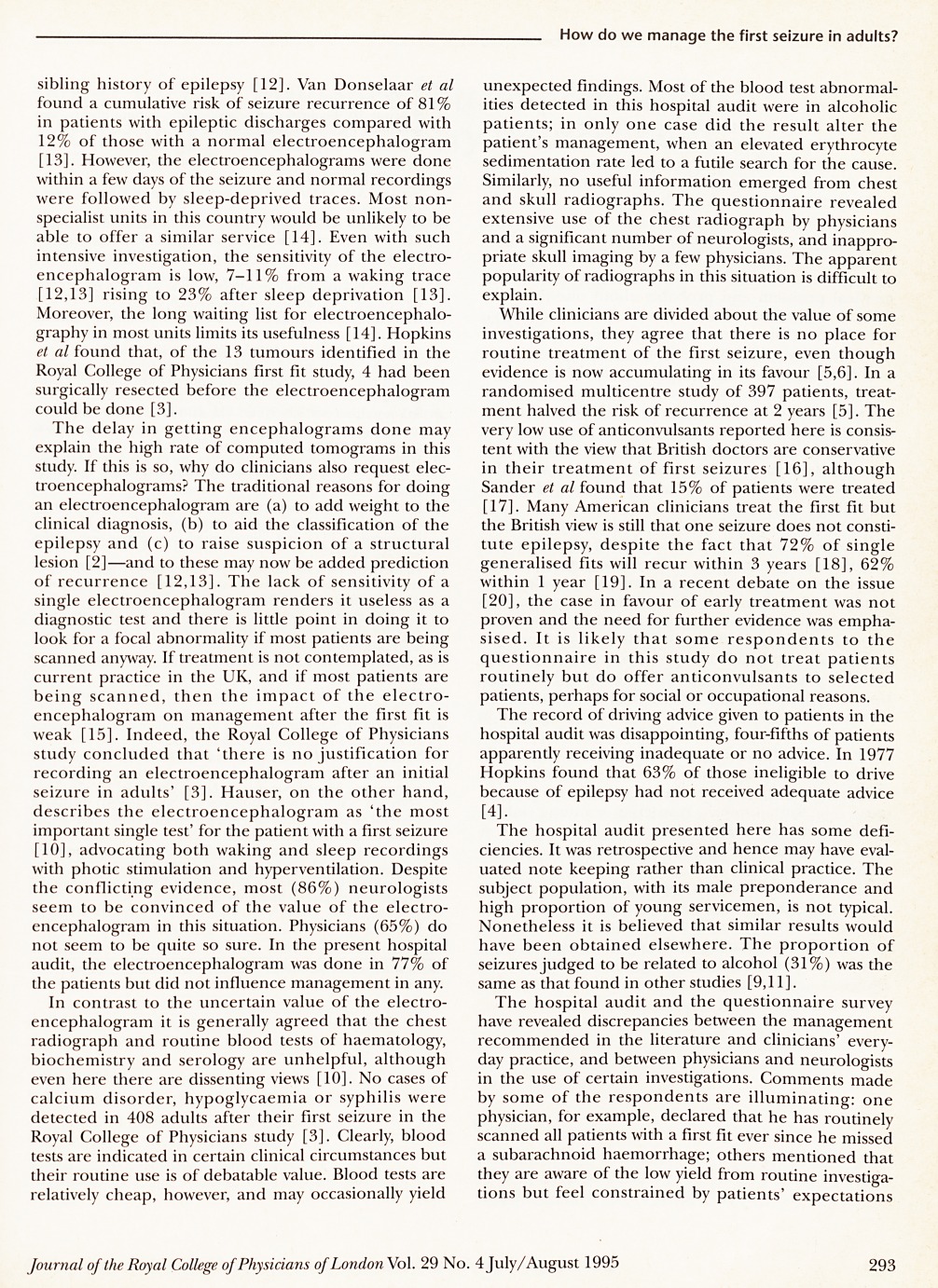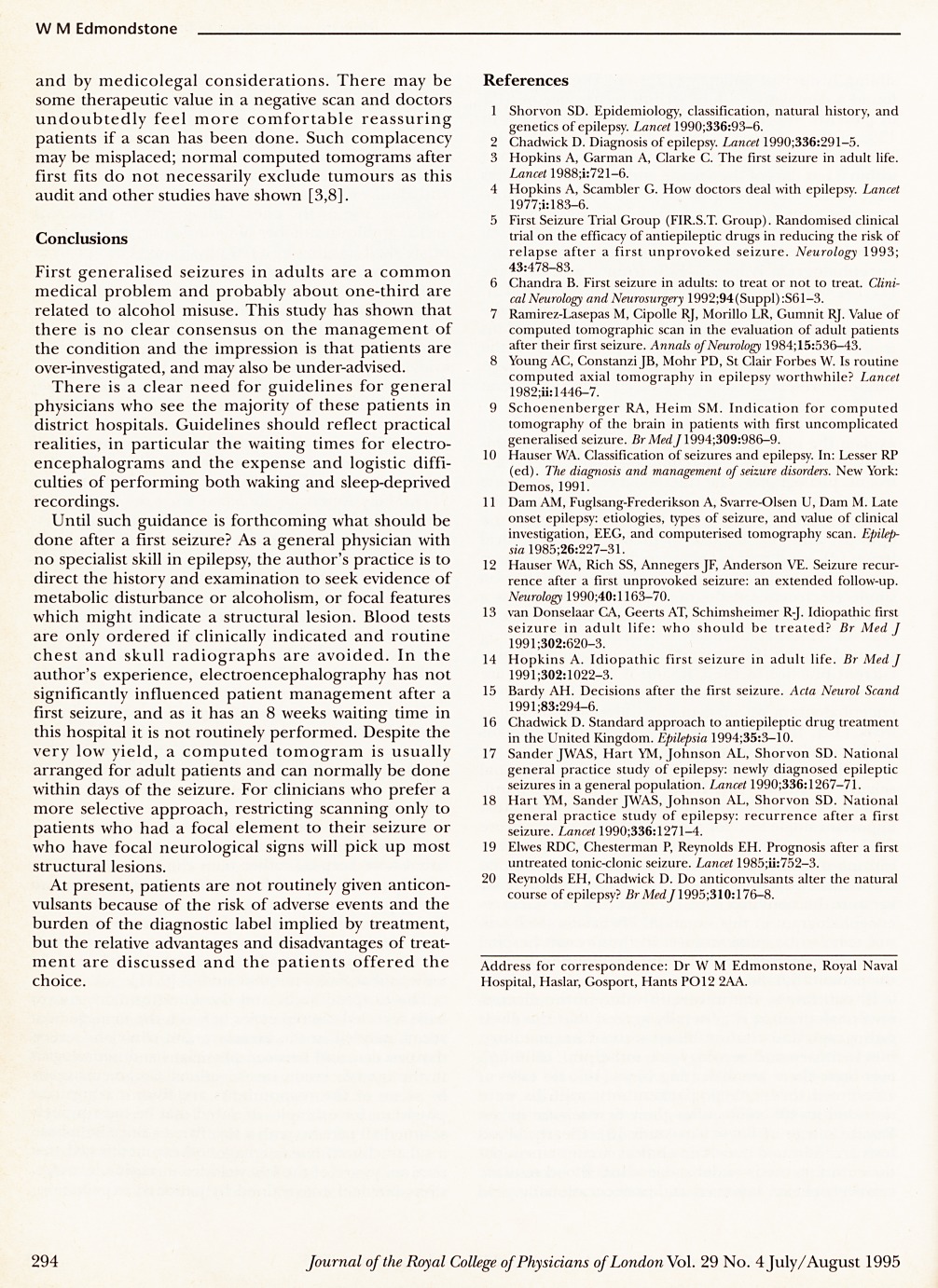Abstract
This paper reports an audit of the management of a first generalised seizure in a small district general hospital and describes the management policies of 95 general physicians and 82 neurologists. The audit studied 56 patients who presented in 1990–93 after witnessed generalised convulsions without focal neurological signs or previous history of seizures. Their ages ranged from 16 to 89 (mean 38) and 47 of them were men. In 31% alcohol was incriminated in the seizure. Blood tests were done in most patients but gave little useful information. Skull and chest radiographs were taken in fewer patients but were unhelpful. An electroencephalogram was done in 77% but failed to influence management in any, and only 2 of the 50 computed tomography scans performed led to a change in management. Only 21% received the correct advice about driving. A questionnaire sent to 130 general physicians and 109 neurologists sought their policy on the management of patients after a first generalised seizure. Completed forms were received from 95 physicians and 82 neurologists (response rate 74%). Half of physicians and neurologists perform a computed tomogram on all patients while one-third scan patients only above a certain age. Neurologists perform significantly more electroencephalograms (86% vs 65%) while many more physicians order a chest radiograph (73% vs 16%). About 80% of physicians compared with about 30% of neurologists ask for routine blood tests of haematology and biochemistry. Only 4% of physicians and 1% of neurologists routinely start anticonvulsant treatment.
Full text
PDF